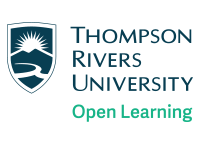
The Open University of Sri Lanka is a national university in Sri Lanka. It is unique within the Sri Lankan national university system for being the only university to offer programs of study leading to certificate, diploma, degrees and postgraduate degrees up to PhD level through the Open and Distance Mode of Learning (ODL). The degrees awarded by the university are treated as equivalent to degrees awarded by any other Sri Lankan University under the preview of the University Grants Commission.
Higher education in Mauritius includes colleges, universities and other technical institutions. Public university education has been free to students since 2019. The sector is managed by the Higher Education Commission (HEC) which has the responsibility for allocating public funds, and fostering, planning and coordinating the development of post-secondary education and training. Formerly the Tertiary Education Commission, in 2020 it was reformed into the HEC and a separate Quality Assurance Authority (QAA) for auditing of qualifications.
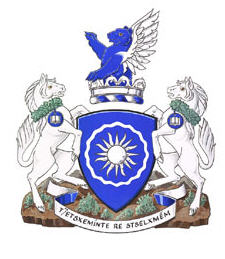
Thompson Rivers University is a public teaching and research university offering undergraduate and graduate degrees and vocational training. Its main campus is in Kamloops, British Columbia, Canada, and its name comes from the two rivers which converge in Kamloops, the North Thompson and South Thompson. The university has a satellite campus in Williams Lake, BC and a distance education division called TRU-Open Learning. It also has several international partnerships through its TRU World division. TRU is accredited by the Northwest Commission on Colleges and Universities (NWCCU) at the associate, baccalaureate and master's degree levels.
North Island College (NIC) North Island College (NIC), is a community college located primarily on Vancouver Island, British Columbia, Canada.
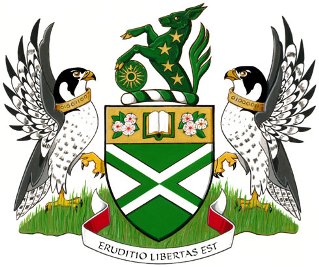
Langara College is a public degree-granting college in Vancouver, British Columbia, Canada, which serves approximately 6,500 students annually through its university, career, and continuing studies programs. At 37% in 2022-23, Langara has the highest percentage of international students of any public BC college, rising from 33% in 2021-2022. On-campus student housing availability sits at 0%. The college takes its name from the neighbourhood in which it is situated, which was named after Spanish Admiral Juan de Lángara.
A virtual campus or e campus, refers to the online offerings of a college or university where college work is completed either partially or wholly online, often with the assistance of the teacher, professor, or teaching assistant. Many colleges and universities now offer such courses either partially or wholly online. There are an estimated 4,500 such institutions with total enrollments approaching perhaps 2 million.
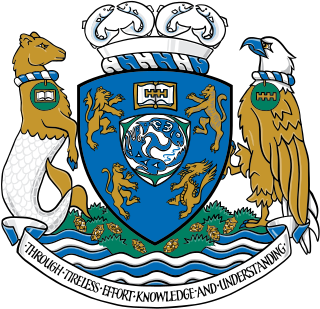
Kwantlen Polytechnic University (KPU) is a public degree-granting undergraduate polytechnic university in British Columbia, Canada, with campuses in Surrey, Richmond, Cloverdale, Whalley, and Langley. KPU is one of the largest institutions by enrolment in British Columbia garnering a total of 20,000 students and 1,400 faculty members across its five locations, encompassing the gestalt of the Metro Vancouver district. KPU provides undergraduate and vocational education including bachelor's degrees, associate degrees, diplomas, certificates, apprenticeships, and citations in more than 140 diverse programs.
TAFE NSW is an Australian vocational education and training provider. Annually, the network trains over 500,000 students in campus, workplace, online, or distance education methods of education. It was established as an independent statutory body under the TAFE Commission Act 1990. The Minister for Regional Development, Skills and Small Business is responsible for TAFE NSW.
The Canberra Institute of Technology (CIT) is a vocational education provider with five campuses located in Canberra, Australian Capital Territory. CIT is the largest Technical and Further Education (TAFE) provider in the Australian Capital Territory. Qualifications offered by CIT range from certificate to degree level. CIT has campuses across Canberra, located in Bruce, Reid, and Fyshwick. CIT also has two learning centres in Tuggeranong Town Centre and Gungahlin, which are primarily for students studying via flexible or distance learning. CIT provides a wide range of education and training courses that focus on practical skills and formal, technical qualifications.
Education Facilitators, a privately held company in South Africa, was a holding and operating company in the education management industry that consisted of three trading divisions, one in professional services and two college brands that operated throughout southern and central Africa from its founding in 1994 to its closure in 2005.

The University of the Philippines Open University(UPOU) is a public research university and is the fifth constituent university of the University of the Philippines System. The majority of UPOU students are based in the Philippines but all of its programs can be taken anywhere in the world. While primarily a virtual university, it has a physical campus that houses admin and faculty offices in Los Baños, Laguna, with Mega Learning Hubs (MLH) in Manila and Cebu.
An online degree is an academic degree that can be earned primarily or entirely through the use of an Internet-connected computer, rather than attending college in a traditional campus setting. Improvements in technology, the increasing use of the Internet worldwide, and the need for people to have flexible school schedules while they are working have led to a proliferation of online colleges that award associate, bachelor's, master's, and doctoral degrees.
The Open Learning Agency (OLA) was a Crown Agency of the province of British Columbia, Canada. Its primary function was the management of the Knowledge Network, a public television station in British Columbia, and the Open Learning Institute. It once played a larger role in education and a university function, before being scaled back by the provincial government in 2004.

Higher education in Canada includes provincial, territorial, indigenous and military higher education systems. The goal of Canadian higher education is to give every Canadian the chance to gain the skills and knowledge they need to reach their fullest potential. It builds a world-class workforce, increases the number of Canadians working, and secures Canada's long-term prosperity. Higher education programs are crafted from the employee's viewpoint in mind, aiming to minimize risks and providing guaranteed outcomes.
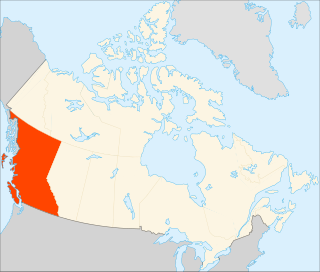
Higher education in British Columbia is delivered by 25 publicly funded institutions that are composed of eleven universities, eleven colleges, and three institutes. This is in addition to three private universities, five private colleges, and six theological colleges. There are also an extensive number of private career institutes and colleges. Over 297,000 students were enrolled in post-secondary institutions in British Columbia in the 2019-2020 academic year.

Hamdan Bin Mohammed Smart University is the first smart university in the United Arab Emirates, established in 2002. The President of the university is the Crown Prince of Dubai, Sheikh Hamdan bin Mohammed bin Rashid Al Maktoum. Being the first e-learning institute in the UAE, its working model has paved the way for the Ministry of Higher Education and Scientific Research (MOHESR), UAE to design standards for accreditation for an e-learning institution. Hamdan Bin Mohammed Smart University (HBMSU) follows in its delivery of learning a blended learning. These methods may include a mixture of face-to-face classrooms, online classrooms, and self-paced learning.
Keilir – Atlantic Centre of Excellence is a private, non-profit, international educational institution located in Ásbrú next to Keflavik International Airport in the city of Reykjanesbaer in Iceland. The school was established in 2007.
The Bridge University (TBU) is a university in South Sudan.

Thompson Rivers University Faculty of Law is the school of law of Thompson Rivers University in Kamloops, British Columbia, Canada. It offers a three-year Juris Doctor degree accredited by the Federation of Law Societies of Canada. Its degree is recognized in all common law provinces and Territories in Canada and by other common law jurisdictions.

The Open Learning Institute of British Columbia (OLI) was a single mode, distance education post-secondary provincial institute in Canada, created in 1978 by the Government of British Columbia. Its mandate was to improve access to higher education across the province by means of distance education and other open learning methods. Inspired in part by the UK Open University model, it used a combination of print-based courses, audiovisual media and telephone tutoring to offer courses up to the baccalaureate degree level. In 1988, it was subsumed in part as the BC Open University under the new Open Learning Agency (OLA). In 2005 it was amalgamated as the Open Learning Division with the newly designated Thompson Rivers University in Kamloops (TRU), BC. TRU was formerly known as the University College of the Cariboo.
